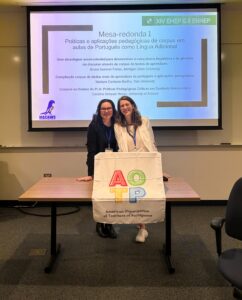Why learn a world language? Advocacy Resources @MSU_MAFLT
Advocacy has been a prevalent theme for world language teachers and programs in the U.S. recently. Teachers are overworked, programs are closing, funding is drying up, new programs are not getting off the ground, and less-commonly-taught languages remain less common unless they are important for national security reasons. Many people hear “advocacy” and think it only encompasses “lobbying.” A petition was circulated in Michigan in June 2022 to prevent the legislature from approving computer programming as a replacement for language learning requirements, and that kind of work is essential. The organization leading the charge on Capitol Hill for world languages is the Joint National Committee for Languages, JNCL, and many other organizations including ACTFL coordinate with them. ACTFL also has its own campaign to promote multilingualism and language learning, Lead With Languages. Most attendees at this meetup in 2022 certainly came to the event expecting to talk about lawmakers and influencing policy:

Maximize the Power of Language Programs
CSCTFL 2021 Virtual – Meetup and Strategy Session
Led by Dr. Amanda Lanier with MAFLT students Teryn Henderson and Tracie Whiting Kipper
In FLT 817 Program Development and Administration, advocacy is only one of many important themes, alongside teacher development and supervision, curriculum design, defining and demonstrating outcomes, and program evaluation. In that course, we try to figure out how to strengthen programs, but those who complete it also have a stronger sense of their role as leaders beyond their programs. At ACTFL 2021 Virtual, a group of students and I gave the presentation below. Rather than emphasizing political action and policy-makers, this presentation provides examples and recommendations so that teachers, department chairs, program coordinators, etc., can advocate for their programs within their own contexts.

Ecology and Vitality of Language Programs:
Advocating for Japanese FLT
Presenters: Betty Brown ’23, Yoshiko Himata Paris ’21, Tracie Whiting Kipper ’21, and Dr. Amanda Lanier.
In practical terms, advocacy overlaps with efforts around recruitment, retention, marketing, promotion, fundraising, and seeking community support. Administrators who do not have experience as or with language teachers may not value our endeavors enough to allocate resources that could go to STEAM or other initiatives. Money may be listed as the primary barrier to promoting a program, but in fact the flow of money is going to be dependent on advocacy efforts.
The challenges of advocacy present a difficult cost-benefit analysis for busy teachers, especially for small programs and LCTL programs: “If I don’t advocate for my program, it could go under, but I don’t have the time and bandwidth to work on advocacy and also keep teaching effectively.” The most vulnerable language programs, those most in need of advocacy, are the same programs in which teachers are wearing multiple hats, teaching heavy loads, lamenting the lack of supervision and collaboration, and fearing for the loss of their jobs.
For that reason, advocacy needs to involve efforts from within language programs and efforts from beyond language programs. Language educators themselves need to find ways to promote their programs that build upon what they are already doing in their classrooms rather than piling work on top of their teaching responsibilities. Some of those are mentioned in the “Ecology and Vitality” presentation above, which is certainly applicable beyond Japanese programs.
The efforts from beyond language programs need to come from allies who believe in the value of multilingualism as one goal of a well-rounded education. The real title of the document that most language teachers know as the “5 C’s” is World-Readiness Standards for Language Learning, and language programs need support from parents, administrators, school board members, community organizations, fellow teachers, and others who believe that language learning is essential to “world-readiness.”
By the same token, language courses need to be truly focused on “world-readiness” as their outcome rather than aiming only at high test scores and the impossible goal of perfect grammatical accuracy. I talk about that issue more in this post on my website:
For now, this post gives me an opportunity to share this Padlet board, which began as a discussion board prompt in FLT 817 in Spring 2022. It includes resources on policy and policy makers, but many of them are here entirely to help language educators like you or your colleagues make the case to your program’s many stakeholders that language learning and multilingualism should receive as much support as they can give. I hope it will be helpful to you, feel free to share, and let us know (maflt@cal.msu.edu) if you want to recommend other posts for this board. Thanks for all your advocacy, past and potential!
Click to open in a new tab: https://padlet.com/LanierPedPad/advocacy_maflt

